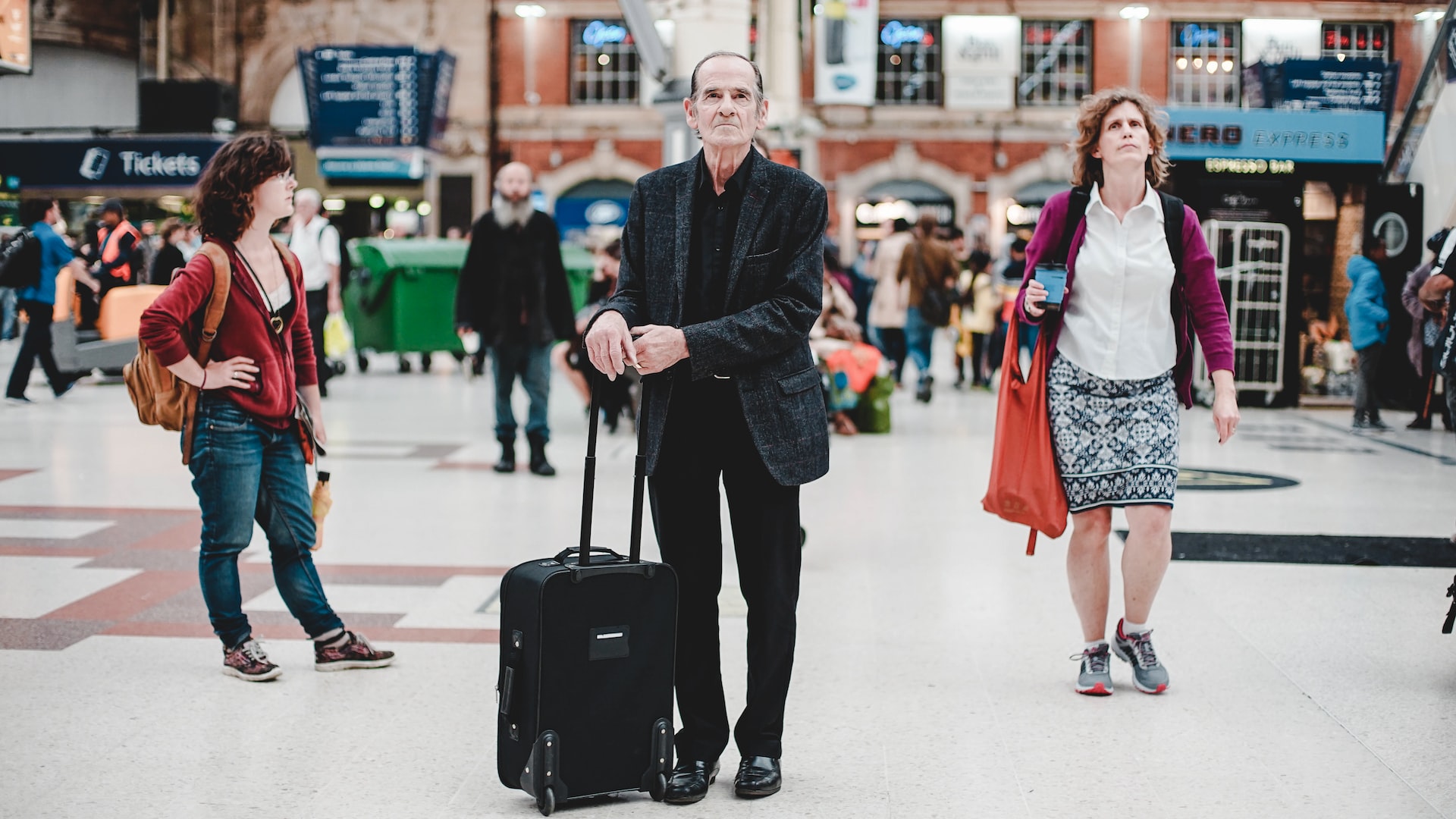Adventure • 02/19/2023
8 Travel Tips for Beginners

Revivalist is a reader-supported endeavor and our posts may contain affiliate links. When you buy through links on our site, we may earn an affiliate commission.
Maybe your parents didn’t have the money to travel much as a child. Now, you have the means to get your passport — and a few stamps for it. You’re ready to see the globe, seize adventure and broaden your perspective. All you need are a few travel tips for beginners.
Before you board the plane, you should ensure you cover a few basics. Otherwise, you risk a less enjoyable trip at best, downright dangerous at worst.
What should you know before embarking on your trek? Here are eight travel tips for beginners to help you make the most of your newfound wanderlust.
1. Pad Your Timing
What is jet lag? This phenomenon is common among those who fly across several time zones, causing disruptions in sleeping patterns. It makes sense. After all, you might depart for Tokyo at noon and arrive at 1 p.m., depending on your flight schedule. You’ll still be exhausted from traveling halfway around the globe.
Therefore, give yourself an extra day or two on the rear end of your journey to recover. You’ll be far more productive on your first day back at the office if you’ve first enjoyed a good night’s sleep instead of tossing and turning.
Furthermore, delays happen. It’s best to plan an extra 20 to 30 minutes for each leg of your journey. When booking layover flights, give yourself at least an hour, up to 90, if you have special needs. That allows time to get from one plane to the next while stretching your legs.
2. Organize Your Suitcase
Do you plan to travel frequently? Maybe you need to for your job or recently got a raise encouraging your globetrotting habits. If so, there’s no substitute for a carry-on suitcase you keep at the ready so that packing is a breeze.
What should you include in your travel go-bag? Include the following to maximize enjoyment on your trip:
- Your passport and copies of documentation: It’s wise to purchase a passport wallet and keep other important documents, such as contact information for your financial institutions, trip and medical insurance and emergency contacts.
- Electronic charging cord, outlet converter and power pack: Everyone relies on their devices nowadays for everything from banking to GPS. Ensure you always have a way to get juice.
- Toiletries: It’s best to stick to your current products if you have a grooming routine you love. Purchase miniature refillable bottles and keep a stash, so you’re ready to go after tossing a few clothes in your bag.
- First aid: You should always carry a first aid kit containing various wraps and bandages, OTC painkillers and allergy remedies and any prescriptions you take. Talk to your doctor about a 2-week travel supply to keep your stash readied.
Preparing the essentials for each trip is one of the most important travel tips for beginners. By packing these before your next vacation, you’ll prepare for anything and have a better experience.
3. Dress in Mix-and-Match Comfort
Checked-bag fees can add a considerable amount to your travel budget. By embracing mix-and-match separates, you can avoid paying them, even on extended journeys.
For example, a neatly pressed T-shirt tucks into jeans or shorts for a day of sightseeing but can be office-appropriate when paired with a blazer and slacks. Coordinate your color scheme so you can pair the same pants, shirts and skirts in various ways, looking fresh daily with only three or four base items.
4. Protect Your Safety
Staying safe becomes tougher when in unfamiliar surroundings. Your number one rule is to leave a flight plan with the folks at home. If something goes awry, they need to know where to direct authorities. If you’re traveling abroad, schedule routine Facetime check-ins so that they can see you are okay and consider an app like Life360 that lets a trusted partner monitor your position via phone.
You should also research the hotel and surrounding neighborhood. What’s the crime rate like? Does the facility include safety features like shuttles to nearby attractions so that you don’t have to walk unfamiliar streets or rely on unaffiliated rideshare services? If you’re staying at a large resort, do they separate conference areas so those who aren’t staying at the establishment stay out of guest areas?
Finally, consider picking up one or more of these travel safety devices to enhance your peace of mind:
- A portable door lock: These prohibit hotel staff from entering your guest room while you’re changing or sleeping.
- A screecher: These devices might look like your typical doorstop. However, they sound the alarm if someone tries to enter your hotel room while you slumber.
- A sliding window lock set: For first-floor hotel rooms.
- An anti-theft belt or scarf: These keep valuables out of your pants where passing pickpockets can help themselves. Your credit cards and cash stay securely close to your skin.
- Pepper spray: It’s best to have something for self-defense, especially if you travel solo. However, firearms can be more dangerous than helpful if you hesitate, as many who aren’t combat-trained will do in a high-stress situation. Fewer people refrain from a painful pepper blast.
- A satellite communicator: Do you love going far off the beaten trek? Cellular service isn’t reliable anywhere, but these gadgets can pinpoint your location via satellite with the press of a button.
- A portable safe: Your best bet is leaving your grandma’s heirloom diamond at home. Your second best is a safe you provide. While many hotels include such amenities, you could feel suspicious about how many staff members have the access code.
5. Do Your Research
You should investigate more than your lodging establishment’s safety record. What are the most exciting sites to see on your trek?
While you can say a lot for spontaneity, you can make the most of a short trip with efficient planning. What are your must-sees? Put them on a map and chart the best course for seeing them all without wasting time and gas driving all over creation. The planet will thank you — as will any children with a case of “are we there yet.”
6. Save a Few Dollars
There are dozens of small ways to save money on traveling, most of which entail common sense. For example, taking a reusable water bottle keeps you from buying endless plastic single servings — include a few purification tablets if voyaging somewhere you question tap quality.
When booking your flights, keep the following tips in mind for the best rates:
- Know your fees: An airline may seem like a discount until they add on checked bag and carry-on fees, early boarding, premium seating, cancellation and change-flight fees and a small fortune for inflight drinks and snacks. Look at the complete picture.
- Be flexible: The best way to pay less on your flight is to be flexible with your dates and times. Book your flight first before requesting PTO.
- Consider connections: Direct flights are often more expensive than those with layovers. However, a short break on a cross-continental flight allows you to stretch your legs and see a little of the local flavor, if only through the airport shops.
- Maximize discounts: Get a credit card with travel rewards if you fly frequently. Look for other discounts, such as signing up for special deals with multiple airlines.
You can also save money at your destination. For example, seek out local restaurants instead of the top Michelin-rated establishments. You’ll often enjoy fresh seasonal fare and chat with the locals for far less than you would at an exclusive venue. Consider using public transportation systems if the city has a good reputation for reliable trains and buses. While you’re learning travel tips for beginners, practicing steps like these is essential.
7. Minimize Your Footprint
Travel takes a toll on the planet. You only have to look at the recent outrage about celebrity private jet use to understand that planes create a considerable carbon footprint. So does driving.
However, you can take steps to minimize your impact. Exercise good judgment — it’s generally more sustainable to drive for short trips and fly for longer ones, as jets use the most fuel during takeoff.
Furthermore, be a good steward on the road. Consider product packaging and create a vehicle recycling center for long trips, as few gas stations provide such amenities. Carry reusable bags with you to avoid plastic when purchasing souvenirs.
8. Preserve Your Memories
You want to remember your voyage, but trinkets aren’t always the way to go. Souvenirs serve a purpose, but there’s no need to buy something you’ll never use as a memory.
Instead, get talented at taking photographs. You can pick up lens kits that attach to your cellphone for little at many retailers. A travel journal is another indispensable tool for penning your memoirs or creating a soundtrack to accompany your scrapbook.
Travel Tips for Beginners
You finally have the chance to indulge your wanderlust. Don’t risk poor planning coming between you and a memorable vacation.
Instead, review these travel tips for beginners before you go. You’ll enhance your safety and enjoyment of your trip and return with glorious memories.
Subscribe to Our Weekly Newsletter
We would love to connect deeper with you!


